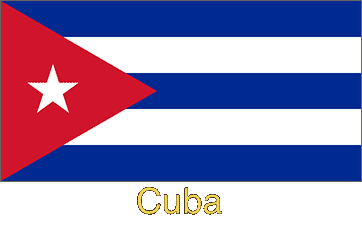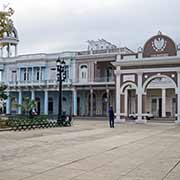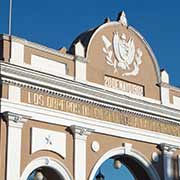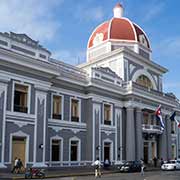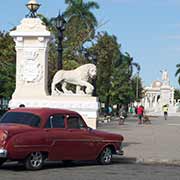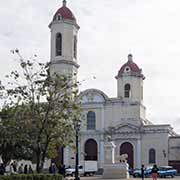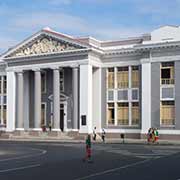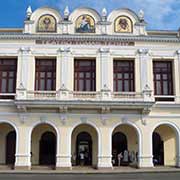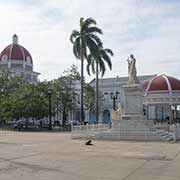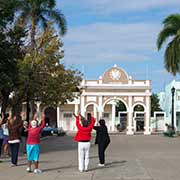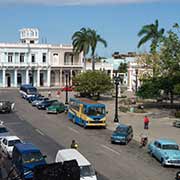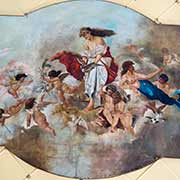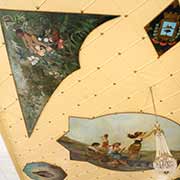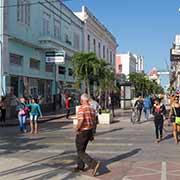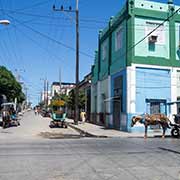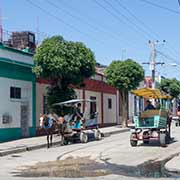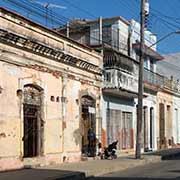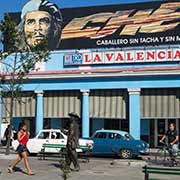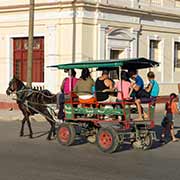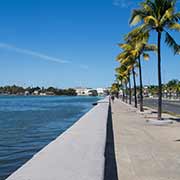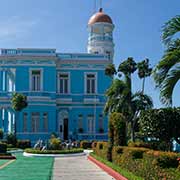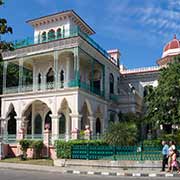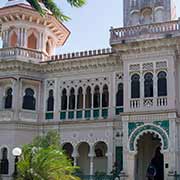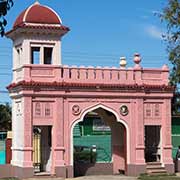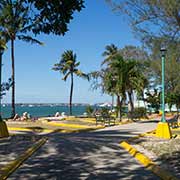Photos of Cienfuegos, the Pearl of the South, Cuba
Cienfuegos, the Pearl of the South
Cienfuegos, the capital of Cienfuegos Province, is a city of about 150,000 people on Bahía de Cienfuegos, a bay on the southern coast of Cuba about 250 kilometres from Havana. It is famous for its elegant colonial-era buildings and dubbed “La Perla del Sur” (Pearl of the South). Originally the area of Taíno indigenous people under their chief Jagua, it was settled on 22 April 1819 by French immigrants from Bordeaux and Louisiana. They were led by Don Louis de Clouet, who called it Fernandina de Jagua, in honour of the Spanish King Ferdinand VII and Chief Jagua.
you may then send it as a postcard if you wish.
It became a town in 1829 and was renamed after José Cienfuegos, who was Captain-General of Cuba from 1816–1819; in 1880, it was called a city, and many of its streets had French names; as they do to this day. The central square in the old town is Parque José Martí, with its Arco de Triunfo, commemorating Cuban independence. The Tomás Terry Theatre has gold-leaf mosaics and ceiling frescoes. There is the Palacio de Gobierno and the Provincial Museum with its beautiful ceiling murals, exploring the city’s colonial history. In 2005, UNESCO inscribed the Urban Historic Centre of Cienfuegos on the World Heritage List, citing Cienfuegos as the best extant example of early 19th century Spanish Enlightenment implementation in urban planning. There is no other place in the Caribbean with such a remarkable cluster of Neoclassical structures.
The Paseo del Prado leads along the Bahía de Cienfuegos to La Punta, the southernmost point of the city. Cienfuegos’ old upper-class neighbourhood has an elegant neo-classical water-front mansion, now Hotel Encanto Palacio Azul. Palacio de Valle, a Spanish-Moorish palace, now houses a seafood restaurant, historical exhibits, and a rooftop bar built in the early 20th Century. At the southernmost point is a park and a beach to relax.


